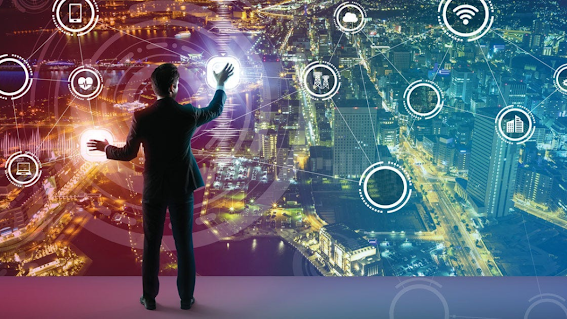IT Services Empowering Retailer- Consumer Conversations via Chatbots
In today’s fast-paced digital era, the retail industry is undergoing a profound transformation, and customer expectations are evolving rapidly. Shoppers now demand seamless and personalized experiences, and they want to interact with retailers in real-time. Enter chatbots, powered by IT services, which are revolutionizing the way retailers engage with consumers. In this article, we will explore how IT services are empowering retailer-consumer conversations through chatbots, enhancing customer satisfaction and boosting business growth.
The Rise of Chatbots in Retail
Chatbots are computer programs designed to simulate human conversation. They utilize artificial intelligence (AI) and machine learning (ML) to interact with customers through text or speech, offering instant support and assistance. In the retail sector, chatbots have gained immense popularity due to their ability to provide 24/7 customer service, answer product-related queries, recommend products, and even facilitate transactions.
Personalized Shopping Experiences
One of the key advantages of chatbots is their capacity to deliver highly personalized shopping experiences. They can analyze customer data, purchase history, and browsing behavior to make tailored product recommendations. For instance, if a customer is looking for a specific type of shoe, a chatbot can suggest relevant options based on the customer’s preferences and previous purchases. This personalization not only enhances customer satisfaction but also drives sales by increasing cross-selling and upselling opportunities.
Real-time Support and Assistance
Consumers often require assistance while browsing or making purchase decisions. Chatbots are available 24/7 to answer customer inquiries promptly, eliminating the need for customers to wait in long queues or spend time searching for information. Whether it’s helping customers find the nearest store location, providing sizing information, or assisting with order tracking, chatbots enhance the overall shopping experience by offering real-time support.
Streamlining Transactions
Chatbots can also streamline the transaction process. Customers can make purchases directly through chatbots, eliminating the need to visit a separate website or app. With secure payment integrations, chatbots enable seamless and secure transactions, making it convenient for customers to complete their purchases without leaving the conversation. This not only reduces cart abandonment rates but also enhances the efficiency of the sales process.
Multilingual and Multichannel Capabilities
IT services empower chatbots to communicate in multiple languages, breaking down language barriers and expanding the retailer’s reach to a global audience. Moreover, chatbots can seamlessly integrate with various messaging platforms, including websites, social media, and mobile apps. This multichannel approach ensures that customers can engage with retailers on their preferred platforms, further enhancing convenience and accessibility.
Data-Driven Insights
The data collected through chatbot interactions provide valuable insights into customer behavior and preferences. Retailers can analyze this data to make informed decisions, refine marketing strategies, and improve product offerings. By leveraging IT services to harness the power of big data and analytics, retailers can gain a competitive edge in the market.
Conclusion
In an era where customer experience is a top priority for retailers, chatbots powered by IT services have emerged as a game-changer. They offer personalized shopping experiences, provide real-time support, streamline transactions, and break down language barriers. Additionally, the data generated by chatbot interactions enable retailers to make data-driven decisions and continuously enhance their offerings.
For more information, visit Superior Codelabs.
Shaikh Fakruddin is the Founder and CEO of Superior Codelabs.




Comments
Post a Comment